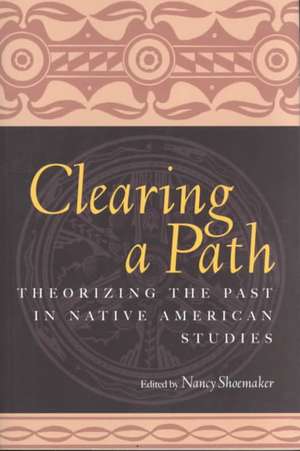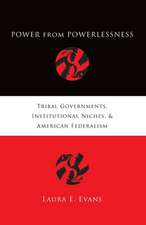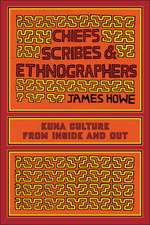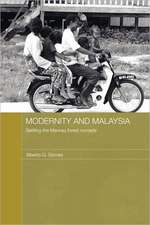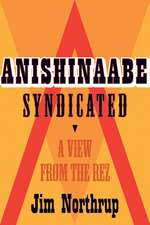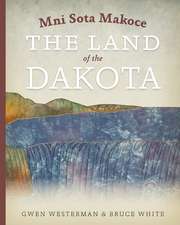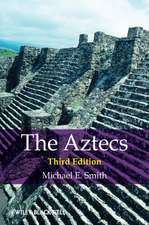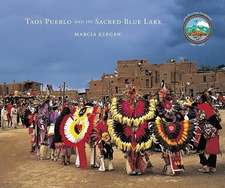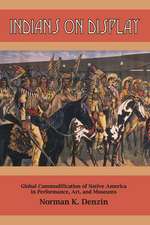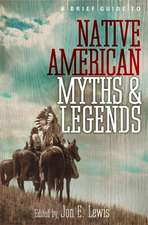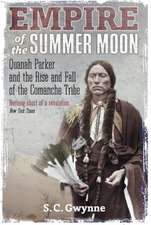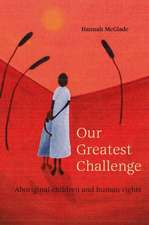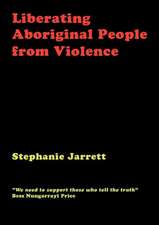Clearing a Path: Theorizing the Past in Native American Studies
Autor Nancy Shoemakeren Limba Engleză Paperback – 12 oct 2001
| Toate formatele și edițiile | Preț | Express |
|---|---|---|
| Paperback (1) | 354.62 lei 6-8 săpt. | |
| Taylor & Francis – 12 oct 2001 | 354.62 lei 6-8 săpt. | |
| Hardback (1) | 1001.07 lei 6-8 săpt. | |
| Taylor & Francis – 12 oct 2001 | 1001.07 lei 6-8 săpt. |
Preț: 354.62 lei
Nou
Puncte Express: 532
Preț estimativ în valută:
67.87€ • 70.59$ • 56.88£
67.87€ • 70.59$ • 56.88£
Carte tipărită la comandă
Livrare economică 14-28 martie
Preluare comenzi: 021 569.72.76
Specificații
ISBN-13: 9780415926751
ISBN-10: 0415926750
Pagini: 230
Dimensiuni: 152 x 229 x 16 mm
Greutate: 0.41 kg
Ediția:1
Editura: Taylor & Francis
Colecția Routledge
Locul publicării:Oxford, United Kingdom
ISBN-10: 0415926750
Pagini: 230
Dimensiuni: 152 x 229 x 16 mm
Greutate: 0.41 kg
Ediția:1
Editura: Taylor & Francis
Colecția Routledge
Locul publicării:Oxford, United Kingdom
Recenzii
"Writing in crystal-clear prose and refusing to submit to the obfuscations of previous scholars, she wonders how people use categories." -- Catherine A. Corman, Western Historical Quarterly
"The political economy section is a standout, with a fierce and funny essay by Patricia C. Albers and a spectacular piece by Jacki Thompson Rand. Rand's analysis of women's beadwork is nothing short of brilliant." -- Catherine A. Corman, Western Historical Quarterly
"Shoemaker provides a superb introduction in which she defines and defends theory." -- Catherine A. Corman, Western Historical Quarterly
"Graduate students preparing for general exams or professors trying to work up new courses will find these lists invaluable." -- Catherine A. Corman, Western Historical Quarterly
"Clearing a Path challenges readers to reexamine the common assumptions and seemingly self-evident truths that pervade Native American studies. . .these essays take creative approaches to questions both new and old. Clearing a Path will, without a doubt, provoke, unsettle, and inspire readers." -- Claudio Saunt, author of A New Order of Things: Property, Power, and the Transformation of the Creek Indians, 1733-1816
"This masterful four-part anthology suggests theoretical methods for opening the way to deeper understandings of Native histories... This marvelous, stimulating, multivocal, multidimensional, and multidisciplinary collection is highly recommended for upper division undergraduates and graduate students in history, anthropology, and American studies." -- CHOICE, R.A. Bucko, Creighton University
"...the strength of Clearing a Path lies not in the answers that it provides but in the questions that it provokes...it represents an important contribution to the philosophical, intellectual, and political questions inherent in Native American studies. [The] title of Clearing a Path invokes a metaphor of diplomacy-the clearing away of obstacles to understanding and communication...to achieve a rapproachment between scholarly theory and meaningful studies of Native American history ou J."
"This is a collection of imaginative, complex, and insightful discussions of how we might do Native American history better." -- Journal of American History
"Historians and others who take these essays seriously will find them both stimulating and insightful. Less prescriptive than exemplary, these discussions of theory succeed in perhaps the best way by raising more questions than they seek to answer and they open new possibilities for interpretation without dictating the conclusions that Native American Studies should reach." -- Sterling Fluharty, University of Oklahoma
"This is a collection of imaginative, complex, and insightful discussions of how we might do Native American history better."
The Journal of American History
"The political economy section is a standout, with a fierce and funny essay by Patricia C. Albers and a spectacular piece by Jacki Thompson Rand. Rand's analysis of women's beadwork is nothing short of brilliant." -- Catherine A. Corman, Western Historical Quarterly
"Shoemaker provides a superb introduction in which she defines and defends theory." -- Catherine A. Corman, Western Historical Quarterly
"Graduate students preparing for general exams or professors trying to work up new courses will find these lists invaluable." -- Catherine A. Corman, Western Historical Quarterly
"Clearing a Path challenges readers to reexamine the common assumptions and seemingly self-evident truths that pervade Native American studies. . .these essays take creative approaches to questions both new and old. Clearing a Path will, without a doubt, provoke, unsettle, and inspire readers." -- Claudio Saunt, author of A New Order of Things: Property, Power, and the Transformation of the Creek Indians, 1733-1816
"This masterful four-part anthology suggests theoretical methods for opening the way to deeper understandings of Native histories... This marvelous, stimulating, multivocal, multidimensional, and multidisciplinary collection is highly recommended for upper division undergraduates and graduate students in history, anthropology, and American studies." -- CHOICE, R.A. Bucko, Creighton University
"...the strength of Clearing a Path lies not in the answers that it provides but in the questions that it provokes...it represents an important contribution to the philosophical, intellectual, and political questions inherent in Native American studies. [The] title of Clearing a Path invokes a metaphor of diplomacy-the clearing away of obstacles to understanding and communication...to achieve a rapproachment between scholarly theory and meaningful studies of Native American history ou J."
"This is a collection of imaginative, complex, and insightful discussions of how we might do Native American history better." -- Journal of American History
"Historians and others who take these essays seriously will find them both stimulating and insightful. Less prescriptive than exemplary, these discussions of theory succeed in perhaps the best way by raising more questions than they seek to answer and they open new possibilities for interpretation without dictating the conclusions that Native American Studies should reach." -- Sterling Fluharty, University of Oklahoma
"This is a collection of imaginative, complex, and insightful discussions of how we might do Native American history better."
The Journal of American History
Notă biografică
Nancy Shoemaker, Associate Professor of History at the University of Connecticut, is the editor of Negotiators of Change: Historical Perspectives on Native American Women and the author of American Indian Population Recovery in the Twentieth Century.
Cuprins
Introduction by Nancy Shoemaker Stories Chapter 1. Oral History, Narrative Strategies and Native American Historiography: Perspectives from the Yukon Territory, Canada by Julie Cruikshank Chapter 2. The Story of America: A Tribalography by LeAnne Howe Categories of Analysis Chapter 3. Categories by Nancy Shoemaker Chapter 4. Some Women are Wiser Than Some Men: Gender and Native American History by Gunlog Fur Political Economy Chapter 5. Marxism and Historical Materialism in American Indian History by Patricia C. Albers Chapter 6. Primary Sources: Indian Goods and the History of American Colonialism and the Nineteenth-Century Reservation by Jacki Thompson Rand Tribal Histories, Indigenous Histories Chapter 7. Keep Your Thoughts Above the Trees: Ideas on Developing and Presenting Tribal Histories by Craig Howe Chapter 8. Life Proceeds From the Name: Indigenous Peoples and the Predicament of Hybridity by James F. Brooks Notes on Contributors Index
